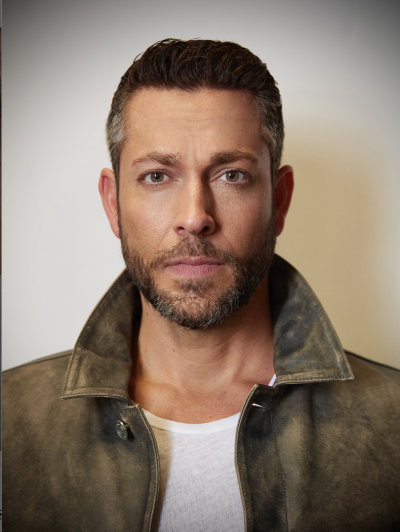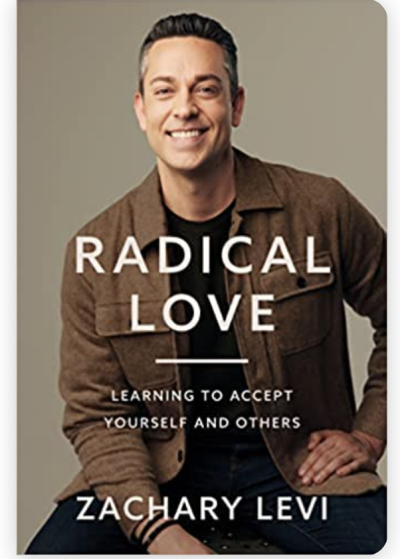Christian actor Zachary Levi says faith helped him overcome suicidal thoughts, forgive abusive mom (exclusive)

To the outside world, Zachary Levi is the definition of success: A Hollywood actor and singer, he received critical acclaim as Chuck Bartowski on the NBC drama "Chuck" and even played a superhero in the DC and Marvel Universes.
But despite his seemingly fairytale life, the 41-year-old “American Underdog” actor is the first to open up about his past struggles with depression and anxiety, struggles so severe they led him to contemplate suicide.
“When I was 37, about five years ago, I had a complete breakdown,” Levi told The Christian Post. “And I basically came to the place where I didn't want to live anymore. And I was really very, very lucky that one of my sisters took it upon herself to go and search the internet for a place that I might be able to go and seek some really deep healing. I went to this three weeks of very intensive, life-changing life-saving therapy, that got me back on my feet. And simultaneously, because I went and did that work, all of a sudden, things in my life started opening up.”
“I didn't even know really what self-love was prior to five years ago,” the “Shazam” actor added. “I'm only four-and-a-half, five years into my self-love journey. I'm an infant when it comes to figuring out how to love myself and self-care. That's another thing that I've never really understood; I've always been ‘other care,’ I've always been trying to save the world and take care of other people. And that's given me purpose and meaning; never really knowing how to spend to with myself, by myself.”
For Levi, who candidly documents his story in his new memoir,Radical Love: Learning to Accept Yourself and Others, his struggles started as far back as he can remember. As a child, he was psychologically abused by his mother, herself a victim of unrecognized abuse, and later, by his stepfather. Generational trauma, the actor said, is both “scientific and biblical.”
“As a young boy, with this big heart, who just wanted to go and love people, it was a very detrimental environment to grow up in,” he recalled. “And what I learned was how to constantly run from the pain that I was suffering constantly. Go and run away from the abusiveness that was in my household through various addictions … it all became very unresolved, unhealed trauma.”
Later, he says, he turned to sex, drugs and alcohol to cope with his pain. But it wasn’t until his 2015 divorce from actress Missy Peregrym, he said, that his inner turmoil came to head.
“A lot of darkness and depression that ensued from that,” he said of the divorce.
“Hollywood is not exactly the most loving, kind, safe place for people's hearts and minds and souls," he added. "And so there's a lot of trauma and abuse that I suffered, even at the hands of a lot of my employers and a lot of just the system that is Hollywood. And again, I didn't recognize it as trauma; I just thought, well, these are struggles, and you kind of worked through them. Little did I know that all of that was feeding into the same trauma that I experienced as a child and I was just reliving a lot of that pain over and over and over again.”

For Levi, an outspoken Christian, learning to love himself came from seeing himself as God sees him: Fearfully and wonderfully made, inherently valuable despite many accolades and achievements. Understanding his identity in Christ, along with therapy and support, was life-changing.
Despite growing up with a "healthy dose of faith," Levi said his relationship with God was tested severely during his bout with depression.
“When I was in the darkness, it was the first time in my life five years ago when I felt perhaps there is no God," he said. "In that moment, I didn't believe in a God, because if there was a God, I don't know why I would be going through the darkness that I was going through where I felt there was no God."
"I was crying out; literally like screaming and crying out to God, to help me understand what was going on with me. And I wasn't getting any answers. I wasn't getting anything of the things that I had previously in my life, feeling like I had gotten clarity and answers and vision from God. So it really, really rocked my world,” he said.
Looking back, Levi knows those feelings of unworthiness were from the enemy. Based on his own experience, he outlines in his book practical steps readers can take to improve their mental, physical and spiritual health, from prayer and meditation to talking to a licensed therapist and finding a supportive community.
“The enemy, the darkness tells us you're uniquely broken; nobody's been broken like you, nobody's going to understand your brokenness, everyone's going to think, ‘Wow, how weird they're broken like this because nobody is broken like this,’” he said.
“And that's kind of weird and messed up. That's such a lie. It is a lie from the pit of Hell. We all struggle with the same stuff and we've all been struggling with it since the beginning of time. So we've got to be willing to accept these ideas and accept that your brain is very easily hijacked.”
Practicing radical love, and seeing others as created in the image of God, Levi said, allowed him to extend forgiveness to both himself and his mother, decades after the abuse he endured.
Publicly sharing his story is both cathartic and intimidating, Levi said. Yet, he feels called to share his struggles and victories in an effort to help others learn that they, too, can find hope and healing.
“No amount of performance is ever going to ultimately earn your worth or your love; you are lovable, and you are loved simply because you are,” he stressed. “The fact that we exist is a miracle. We are all these walking, talking miracles.”
He also hopes society will continue to reframe the conversation around mental health, taking it just as seriously as physical health.
“Mental illness is like physical illness. And as a whole spectrum, we have physical illness, it's like the common cold all the way to cancer. And the same is true with mental illness, you can have very little, manageable things, but it's still a little mental illness, or you … might need to be admitted into a psychiatric hospital and put into a particular room and put on very heavy drugs and whatever that is,” he said.
“There is nothing to be ashamed of in any of that. We are all children of God, and we are all worthy of being loved on every possible level. I think that's the biggest thing that Christ was trying to get us all to understand when He was here.”
Though he’s grateful for how far he’s come, Levi is the first to admit his recovery remains a work in progress. The actor emphasized that healing is “not a sprint, it’s a marathon” — and it’s one that takes intentional time and care.
“Do not ever, ever, ever believe that you are alone in this,” he said. “We are all in this together. And we are all struggling through this stuff.”
The actor doesn't want others to put him on a pedestal, fully aware of how celebrities can come across to an image-obsessed society: "We shouldn't look [celebrities] like, ‘Oh, they've got it all together, somehow they're better or whatever,'" Levi said. "We're a bunch of schmucks like everybody else. We're struggling … and in a lot of ways, we're struggling even more than other people because of the weird pressures and judgments and things that come with this weird job that we have.”
And with his newfound sense of purpose and hope, Levi is on a mission to use his platform to uplift others, whether it’s using his talents to star in films like “American Underdog” or sharing his story with the world.
“We've got a limited amount of time that we get to kick around on this big, spinning ball of mud,” he said. “And I want to do as much as I can to bring as much joy to people as I can. But also, given the journey that I've been through on my own mental health, I just felt like if I can take any of that, if I can go walk through those flames, and I can help anybody walk through the same flames that I did, it feels like a pretty good use of my time.”
Leah M. Klett is a reporter for The Christian Post. She can be reached at: [email protected]




























